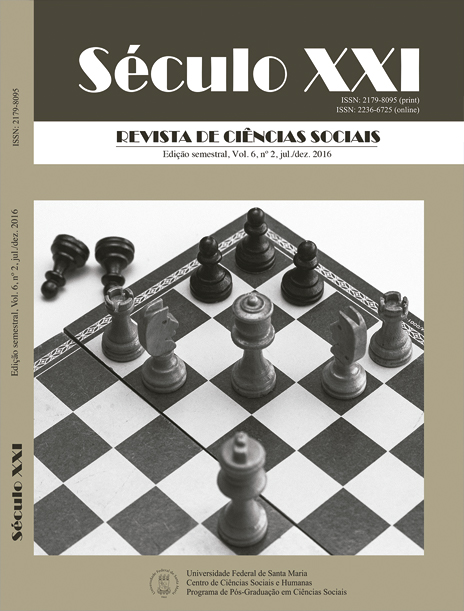The role of the economic and social development council in the strategic interactions for the development
DOI:
https://doi.org/10.5902/2236672526322Keywords:
Strategic Interactions, Development, CDES, Dialogue, ConcertationAbstract
Council for Economic and Social Development (CDES) was designed to play a purposeful and articulator role of a development project through social dialogue. In this way, we understand that the CDES would stimulate strategic interactions for development. That is, CDES should integrate an institutional arrangement capable of facing the coordination’s problems of a new development strategy. In this article, we investigate the role played by the Council during Lula’s government (2003-2010) through analysis of contextual dimensions and institutional learning. We argue that, since its creation in 2003 until the end of the second Lula government, CDES has been an important arena for dialogue on development to promote intermittent strategic interactions. Despite showing significant fluctuations in intensity and form of interaction, Council presented the culmination of his performance during the 2008 crisis, reaching an advanced level of social dialogue. At the time, CDES promoted strategic interactions that contributed to the spread of optimism and recovery Brazilian economy. However, how quickly the dismantling of strategic interactions happened suggests that CDES present difficulties to continue playing this roleDownloads
Downloads
Published
How to Cite
Issue
Section
License
Authors who publish in this journal agree with the following terms:
1. Authors keep the copyrights and allow the journal the right of first publishing, having the paper simultaneously licensed by Creative Commons Attribution License that allows the sharing of the article – copyright recognized - and first publishing in this journal.
2. The journal is allowed to require the copyrights transfer, allowing the article to be used under noncommercial purposes, including the right to send the paper to Free Access or Paid databanks, not assuming the obligation to pass on the value charged from users to the authors.
3. Authors are allowed to take additional contracts separately for nonexclusive distribution of the paper’s version published in this journal (e.g. publishing in institutional repository or as book chapter), recognizing the copyright and first publishing in this journal.







